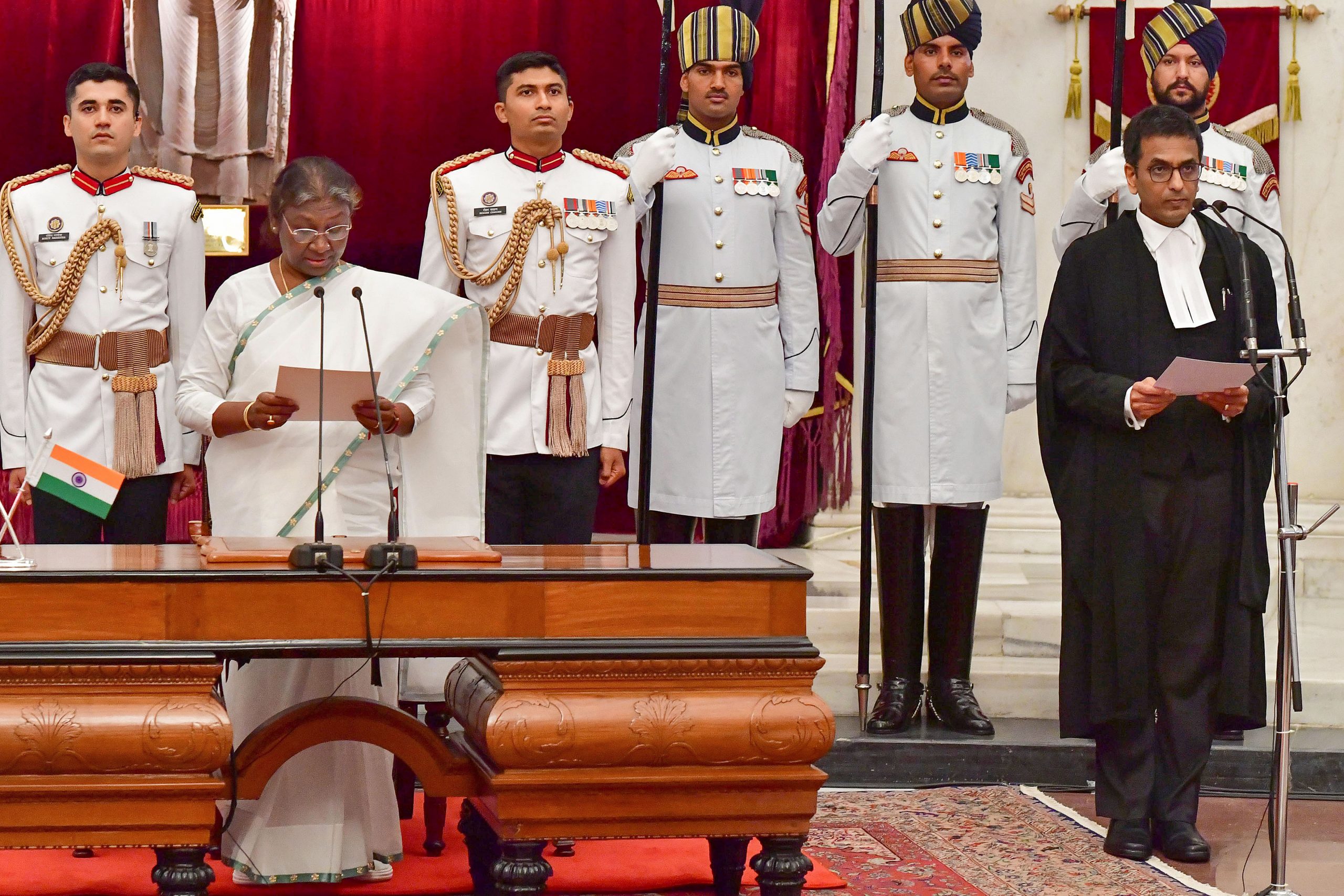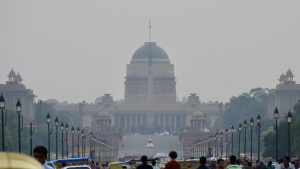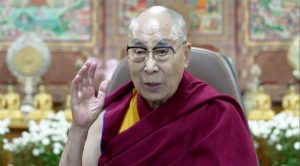President Droupadi Murmu administered the oath to the 50th Chief Justice of India (CJI), Dhananjaya Y Chandrachud on November 9. He paid tribute to the Mahatma Gandhi statue in the Supreme Court after taking the oath. Justice Chandrachud will be the Chief Justice of India for two years, until November 10, 2024. He takes over for Uday Umesh Lalit, who recommended him to the Center on October 11.
Throughout his stellar career, Justice Chandrachud has participated in a number of landmark decisions, including those on the Ayodhya title dispute, the decriminalization of homosexuality, adultery, privacy, and the entry of women into Sabarimala, among others. Here are five of his landmark decisions:
Also Read| Justice DY Chandrachud takes oath as 50th Chief Justice of India
1. Ayodhya Land Dispute
On November 9, 2019, the Supreme Court issued a unanimous decision clearing the way for the construction of a Ram temple at the Ayodhya site. The court also ordered the central government to give the Uttar Pradesh Sunni Central Waqf Board a five-acre plot of land so that it can construct a mosque. Justice Chandrachud was one of five judges appointed to the Constitution Bench.
2. Permanent commissions for female army officers
In February 2020, a bench led by Justice Chandrachud issued a decision in favour of female Army officers, allowing them to obtain permanent commissions and command positions. He rejected the government’s stance on their physical limitations, which was based on gender performativity and other anti-women stereotypes. Later, a panel led by him granted permanent commissions to female naval officers, levelling the playing field and eradicating years of prejudice.
Also Read| Who is Justice DY Chandrachud?
3. Right to privacy
Justice K. S. Puttaswamy, a retired judge from the High Court, filed a writ petition in the Supreme Court in 2012 contesting the constitutionality of the UPA Government’s Aadhaar scheme. In the lead opinion for the nine-judge panel in the case, which was later written by Justice Chandrachud, it was unanimously decided that the right to privacy should be protected as a fundamental right under the Constitution.
4. Decriminalization of Section 377 under IPC
As a member of a five-judge constitution bench, Justice Chandrachud unanimously declared that every person, regardless of sexual orientation, deserved equal rights while also decriminalizing a portion of the antiquated colonial law under section 377 of the IPC, which criminalized consensual unnatural sex between consenting adults and permitted homosexuality.
5. Unmarried Women’s Abortion Rights
On September 29, 2022 an apex court bench led by Justice DY Chandrachud issued a decision that extended the benefits of the Medical Termination of Pregnancy Act, 1971 (MTP Act) to unmarried women. On International Safe Abortion Day, he delivered the decision, saying that the law should not decide who should benefit from a statute based on narrow patriarchal principles about what constitutes permissible sex because it would create invidious classifications. In one of his opinions, he also recognized marital rape as a crime.
6. The Sabarimala case
He agreed with the majority opinion in the Sabarimala case that barring women of menstruating age from entering the temple to preserve its sanctity was discriminatory and a violation of their fundamental rights.
7. Noida’s twin tower demolition
A bench led by Justice Chandrachud ordered the demolition of real estate mogul Supertech’s 40-storey twin towers in Noida. It was an illegal structure that violated building codes.






